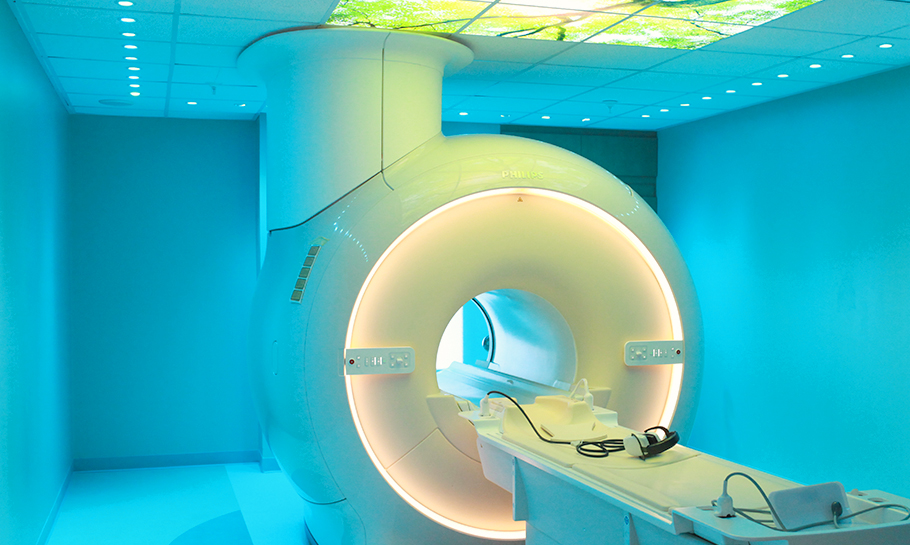MRI (Magnetic Resonance Imaging)

MRI (magnetic resonance imaging) uses a powerful, but harmless, magnetic field and radio waves to produce detailed images of body structures such as the brain, the spine and other vital organs. This technology allows physicians to detect developing diseases or abnormalities.
At SIH, we offer two MRI experiences. Here’s a look at both:
- 5 MRI: This offers high quality images and short exam times. It also has an audio and visual component designed to help you relax, along with a wide-bore opening to help you feel less confined.
- 3T MRI: This is the most powerful magnet clinically available, delivering crisp, high-quality images your physician needs for diagnostic confidence. It has a spacious opening, creating a more comfortable imaging experience for you.
What to expect during an MRI
The average MRI scan takes less than an hour. You will lie on a cushioned table, which will automatically move into the magnet after you have been comfortably positioned.
The technologist will leave the room, but you will be in constant contact with him or her throughout the entire exam.
When the MRI scan begins, you will hear a muffled thumping sound, which will last for several minutes. Try to lie as still as possible since any movement during this time will blur the picture. Other than sound, you should experience no other sensation during scanning.
Preparing for an MRI
If you have surgical (such as metal implants) or occupational history (such as working as a welder or grinder), please be sure to tell the technologist prior to your exam. Preliminary X-rays may need to be taken in order to comply with insurance regulations.
Also, please bring previous X-rays applicable to the exam.
You may eat and drink prior to the exam. Please take any medications you may currently be taking. Your physician may prescribe medication prior to the exam if you think you may be claustrophobic. If you do receive medication, please bring someone with you that will be able to drive you home because you will not be able to drive yourself.
You can’t have an MRI if you have the following:
- A Pacemaker
- Cerebral aneurysm clips
- Certain heart valves
- Cochlear implants
- Metal filings